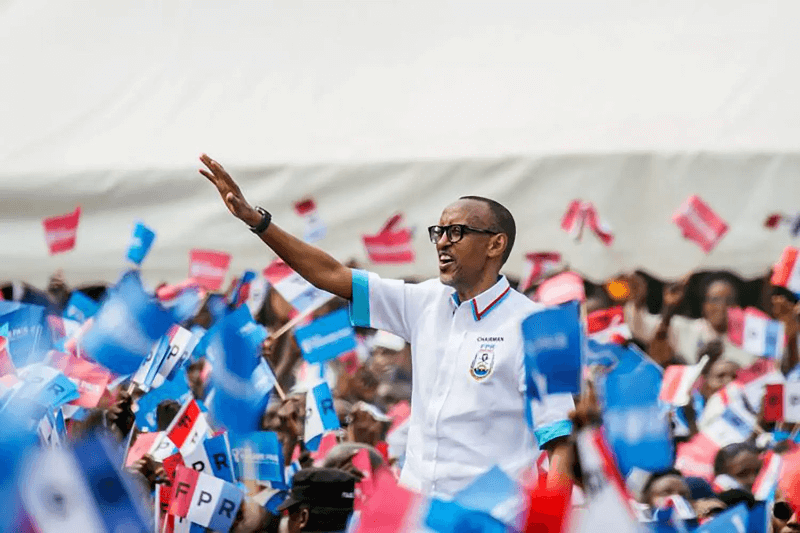Nine million registered voters are part of Rwanda’s first simultaneous presidential and legislative elections, thus launching the campaign for its July 15 presidential contest.
Frank Habineza, chairman of the Democratic Green Party, and independent candidate Philippe Mpayimana will challenge Paul Kagame, who has been Rwanda’s president since being chosen by Parliament in 2000 and re-elected by universal suffrage in 2003, 2010, and 2017.
Past convictions prevent key opposition figures like Victoroire Ingabire and Bernard Ntaganda from running for office. The revocation of Diane Rwigara’s candidacy occurred due to non-compliant documentation, despite her previous clearance in 2018.
A 2015 constitutional amendment changed the duration of presidential terms from seven to five years, allowing Kagame to hold office until 2034 if he wins reelection.
Legislative elections, which include over 500 candidates vying for 80 parliamentary seats, coincide with the presidential election for the first time. While voters directly elect 53 lawmakers, they will indirectly choose 27 seats for women, young people, and disabled persons.
Long-time opponents will once again confront de facto dictator Kagame, who emerged following the conclusion of the 1994 genocide. Re-elected three times with more than 90% of the vote, he has been Rwanda’s president since 2000. Rwanda’s notable economic recovery following genocide marks his leadership, but it also marks accusations of political persecution and violations of rights.
Rwandan courts have turned down appeals from well-known opposition leaders to clear past convictions that prevent them from contesting. The electoral commission also disqualified Diane Rwigara for not meeting the necessary requirements, which included submitting a criminal record statement and gathering 600 citizen supporting signatures. Originally disqualified in 2017 due to forgery claims, Rwigara, the daughter of former Kagame ally Assinapol Rwigara, later received clearance.
Starting his campaign at a gathering in Musanze, Kagame defended Rwanda’s democratic credentials in the face of claims of repressing opposition. He underlined Rwanda’s special conception of democracy, which he characterized as the freedom to decide what is best for the people.
Since the 1994 genocide, which killed around 800,000 people, Kagame has been a pillar in the Rwandan political scene. His reign started in 2000 after former president Pasteur Bizimungu retired. Impressive electoral successes, guaranteeing over 90% of the vote in three elections, define Kagame’s presidency.
International human rights groups have criticized Kagame’s government, notwithstanding his economic successes. Human Rights Watch has charged the Rwandan government with a long-standing crackdown on opposition, media, and civil society involving threats, arbitrary court rulings, and excessive prison sentences.
Kagame oversaw divisive constitutional reforms in 2015 that might let him rule until 2034. These changes reduced presidential terms and reset Kagame’s term limitations, allowing him to reign in a transitional role from 2017 to 2024 and then for two further five-year terms.
There are around 500 candidates running for 80 seats in the legislative elections. Voters will directly choose 53 legislators, with 27 seats reserved for specific groups—24 for women, two for young people, and one for a disabled representative. Municipal and regional councillors choose women legislators; young people representatives from the National Youth Council; and a disabled candidate from the Federation of Associations of the Disabled.
Kagame’s party and supporters currently hold 49 of the 53 seats in the lower house. The Democratic Green Party and the Social Party Imerakiri each have two seats.
The nation waits for the outcomes of the election, which will decide Rwanda’s political course for next year.

